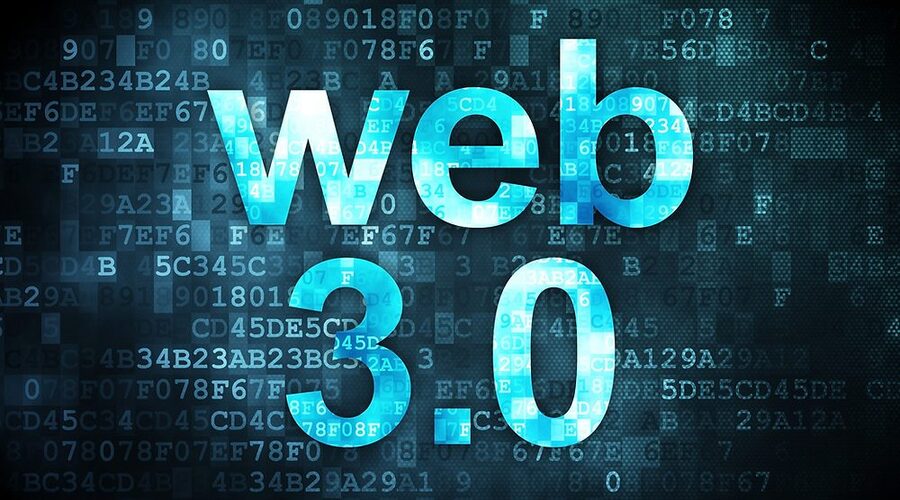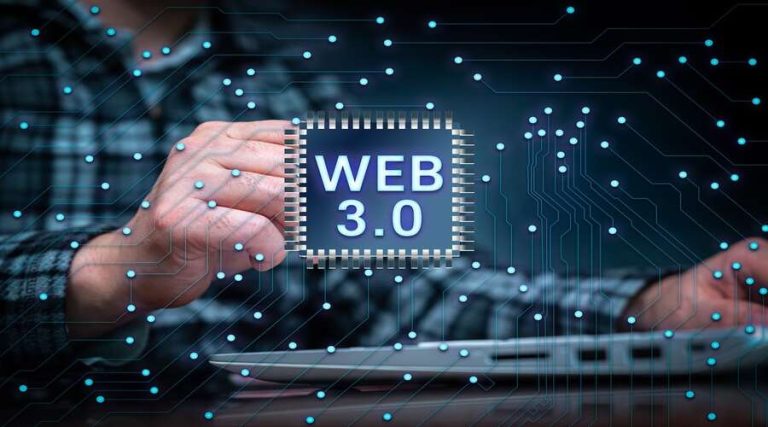
Online voting and decision making have been around for some time, but the current systems are centralized, leaving room for fraud and manipulation. However, with the emergence of Web 3, there is a new and more secure way to vote and make decisions online. Web 3 technologies, such as blockchain, DApps, and smart contracts, have the potential to revolutionize the way we vote and make decisions online.
Web 3 Technologies
Web 3 is the next generation of the internet, which is decentralized and allows for peer-to-peer interactions. Web 3 technologies make use of decentralized systems and blockchain to provide transparency and security in online transactions. Some of the technologies that make up Web 3 include:
Blockchain Technology
Blockchain technology is a decentralized system that provides a transparent and secure way of storing and sharing data. In online voting and decision making, blockchain technology can be used to provide transparency, immutability, and security in the voting process.
Decentralized Applications (DApps)
Decentralized applications are software applications that run on a decentralized network. DApps are designed to provide the benefits of a centralized application while still maintaining the transparency and security of a decentralized network.
Smart Contracts
Smart contracts are self-executing contracts that are programmed to execute when certain conditions are met. In online voting and decision making, smart contracts can be used to automate the voting process, ensuring that the voting rules are followed.
Advantages of Web 3 in Online Voting and Decision Making
Web 3 has several advantages that make it suitable for online voting and decision making. Some of these advantages include:
- Transparency
Web 3 technologies, such as blockchain, provide transparency in the voting process. With blockchain, every vote is recorded on a public ledger, making it possible for anyone to verify the voting results.
- Security
Web 3 technologies are more secure than traditional online voting and decision-making systems. Blockchain technology provides a secure way of storing and sharing data, and smart contracts ensure that the voting rules are followed.
- Accessibility
Web 3 technologies provide accessibility to everyone, regardless of their geographical location. Online voting and decision making can be done from anywhere in the world, making it easier for people to participate.
Web 3 and the Future of Online Voting and Decision Making

Web 3 has the potential to revolutionize the way we vote and make decisions online. With Web 3 technologies, online voting and decision making can be done securely, transparently, and cost-effectively. Some of the benefits of Web 3 in online voting and decision making include:
- Increased Participation
Web 3 technologies make it easier for people to participate in online voting and decision making. With traditional systems, there are often barriers to participation, such as physical location or the need to be physically present to vote. With Web 3 technologies, people can participate from anywhere in the world, making it easier for everyone to have their say.
- Better Decision Making
Web 3 technologies can also lead to better decision making. With increased participation, decision-making processes can be more inclusive and representative of the opinions of a wider range of people. Additionally, with transparency and security provided by Web 3 technologies, the accuracy of the decision-making process can be improved, reducing the potential for manipulation or fraud.
- Cost-Effective
Web 3 technologies can also be cost-effective for online voting and decision making. Traditional systems often require significant resources to set up and maintain, including physical infrastructure, staff, and security measures. Web 3 technologies can significantly reduce these costs, making it more feasible for smaller organizations or communities to implement online voting and decision-making systems.
Challenges and Solutions in Web 3 Online Voting and Decision Making
While Web 3 technologies have significant potential for online voting and decision making, there are also several challenges that need to be addressed. Some of these challenges include:
- Voter Verification
One of the challenges of Web 3 online voting and decision making is voter verification. Ensuring that each person has only one vote can be difficult in a decentralized system. However, there are several solutions to this problem, such as using identity verification systems, biometric data, or social network verification.
- Identity Verification
Another challenge is identity verification. Ensuring that the person voting is who they claim to be is crucial for the integrity of the voting process. Several solutions to this problem include using government-issued identity cards, biometric data, or digital identity verification systems.
- Voting Anonymity
Web 3 technologies provide transparency in the voting process, but in some cases, voters may want to remain anonymous. Several solutions to this problem include using anonymous voting tokens, implementing encryption systems, or using zero-knowledge proof systems.
- Scalability
Web 3 technologies are still relatively new and are not yet scalable enough to handle large-scale online voting and decision-making processes. However, there are ongoing developments in this area, and as the technology improves, scalability should become less of an issue.
- Usability
Finally, another challenge is usability. Web 3 technologies can be complex, and not everyone may be familiar with how to use them. However, several solutions to this problem include providing user-friendly interfaces, educational resources, or support systems.
Examples of Web 3 Voting and Decision Making Platforms
Several Web 3 platforms already exist that provide online voting and decision-making services. Some of the most notable examples include:
Horizon State
Horizon State is a blockchain-based platform that provides secure and transparent voting and decision-making services for governments, organizations, and communities. The platform uses smart contracts to automate the voting process and ensure transparency and security.
Follow My Vote
Follow My Vote is a blockchain-based voting platform that provides end-to-end verifiable voting solutions. The platform uses encryption and blockchain technology to ensure security, transparency, and anonymity in the voting process.
Democracy Earth
Democracy Earth is a blockchain-based platform that provides decentralized decision-making services for communities and organizations. The platform uses blockchain technology to ensure transparency and security in the decision-making process.
The Role of Artificial Intelligence
One potential area of innovation in online voting and decision making with Web 3 is the use of artificial intelligence (AI). AI can be used to analyze large amounts of data and provide insights that can inform decision-making processes. For example, AI algorithms could be used to identify patterns in voting behavior, which could help improve the accuracy and reliability of the voting process. Additionally, AI could be used to help identify potential security threats or vulnerabilities in the voting system.
The Impact of Web 3 on Governance
Web 3 technologies have the potential to significantly impact the way governance is conducted at all levels, from local communities to national governments. By providing a more transparent, secure, and accessible decision-making process, Web 3 technologies could help promote greater trust and engagement in the political process. Additionally, Web 3 technologies could enable new forms of governance that are more decentralized and participatory, such as decentralized autonomous organizations (DAOs).
The Ethics of Web 3 Online Voting and Decision Making
As with any technology, there are ethical considerations to be taken into account when implementing Web 3 online voting and decision-making systems. One key ethical issue is the potential for digital exclusion, as not everyone may have access to the technology or the knowledge necessary to use it. Additionally, there is the potential for bias and discrimination in the voting process, particularly if AI algorithms are used to analyze voting behavior. It is important to address these ethical considerations in the design and implementation of Web 3 online voting and decision-making systems.
Web 3 and the Future of Civic Engagement
Web 3 technologies have the potential to significantly impact the way people engage with their communities and participate in the political process. By providing more accessible and transparent decision-making processes, Web 3 technologies could help promote greater civic engagement and participation. Additionally, Web 3 technologies could enable new forms of collective action, such as crowdfunding or community-driven initiatives, that could help address social and environmental challenges.
The Future of Web 3 Online Voting and Decision Making
The future of Web 3 online voting and decision making is exciting and full of potential. As the technology continues to evolve and mature, we can expect to see new and innovative solutions to the challenges of online voting and decision making. Additionally, as more people become familiar with Web 3 technologies and their benefits, we can expect to see increased adoption and use of these systems for a variety of purposes.
Conclusion
Web 3 technologies have the potential to revolutionize the way we vote and make decisions online. With their transparency, security, and accessibility, Web 3 technologies can provide a more inclusive, representative, and accurate decision-making process. While there are still challenges to be addressed, ongoing developments and innovations in Web 3 technologies are promising for the future of online voting and decision making.
I have been writing about cryptocurrencies for over two years and I’m widely considered one of the most knowledgeable and respected authors in the space. I have a deep understanding of the underlying technology and market dynamics, and my insights have helped countless investors make informed decisions about their portfolios. I’m a speaker and commentator, and my work has been featured in major publications such as CoinDesk, Forbes, and The Wall Street Journal. I also run a popular cryptocurrency trading signals service that has helped thousands of people make money in the volatile but potentially lucrative world of digital assets.


